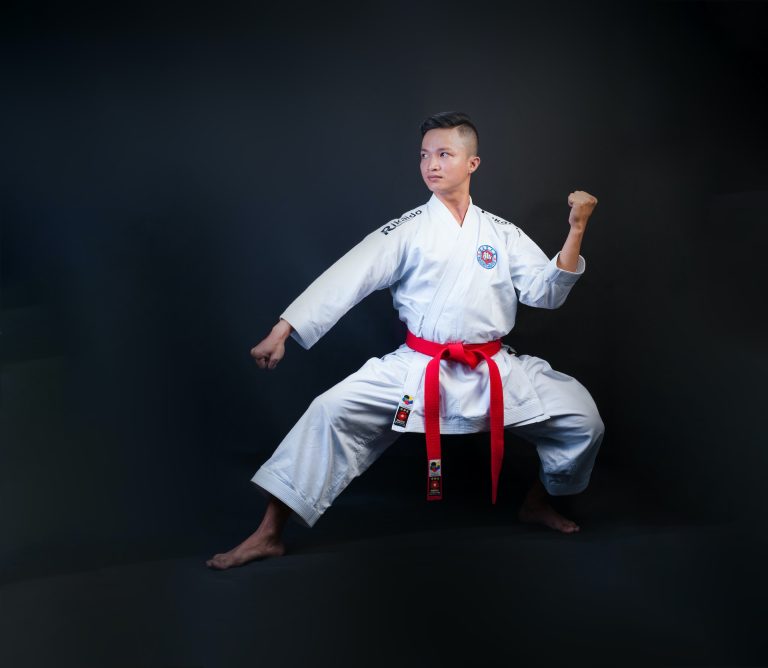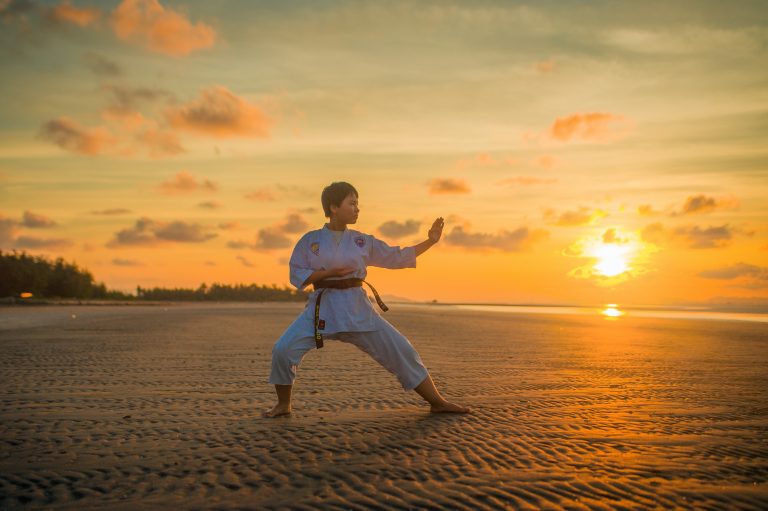Why Karate is Good for You: Benefits and Reasons
Karate is a martial art that originated in Okinawa, Japan. It is a form of self-defense based on the principles of discipline, focus, and respect. It is a popular martial art practiced by many individuals, both young and old alike. In recent years, practicing karate has gained immense popularity among fitness enthusiasts owing to the host of benefits that it offers.
Karate is not just about learning to punch and kick. It is a complete workout that offers numerous benefits to the body, mind, and soul. The practice of karate involves a combination of physical and mental exercises that can help you achieve overall well-being. Below are some of the top reasons why karate is good for you.
1. Physical Fitness
Karate is a high-intensity workout that involves a series of movements such as kicks, punches, and blocks. It can be an excellent way to get in shape and stay fit. Practicing karate can help you develop greater strength, flexibility, endurance, balance, and speed. It can also help you burn calories and lose weight.
Research indicates that practicing karate can improve your cardiovascular health, lower your blood pressure, and enhance your respiratory function. It can also help you tone your muscles and reduce the risk of developing chronic diseases such as diabetes, obesity, and heart disease.
2. Self-Defense Skills
One of the primary reasons why people practice karate is to learn self-defense skills. Karate is a highly effective self-defense system that can help you protect yourself from physical harm. The techniques you learn in karate can help you defend yourself against attackers, overcome fear, and improve your confidence and self-esteem.
The practice of karate involves learning how to strike, kick, throw, and grapple with an opponent. Through training, you can develop the skills to escape from dangerous situations, avoid conflicts, and stay safe.
3. Mental Focus and Discipline
Practicing karate requires a high level of mental focus and discipline. The practice involves a series of repetitive movements that can help you develop greater concentration, focus, and patience. It can also help you cultivate greater self-discipline and self-control.
Through regular practice, you can learn to develop a greater awareness of your body and mind. You can learn how to regulate your breathing, reduce stress and anxiety, and cultivate greater inner peace and calm. These skills can be applied in everyday life, helping you become more focused, disciplined, and resilient.
4. Personal Growth and Development
The practice of karate offers a unique opportunity for personal growth and development. It provides an environment that fosters growth, learning, and self-improvement. The practice can help you develop greater self-awareness and self-confidence. It can also help you build stronger relationships with others and develop a deeper sense of empathy and compassion.
Karate provides a safe and supportive environment for individuals to challenge themselves and overcome obstacles. Through the practice of karate, you can learn to push past your limits and achieve your goals. You can also learn to embrace failure as a growth opportunity and cultivate a mindset of continuous improvement and learning.
5. Community and Camaraderie
Another significant benefit of practicing karate is the sense of community and camaraderie that it provides. Karate is a social activity that brings people together from all walks of life. It provides an opportunity to meet new people, make friends, and develop new relationships.
Karate schools provide a supportive and welcoming environment that encourages collaboration and teamwork. They offer an opportunity to train with others, learn new skills, and achieve common goals. Through the practice of karate, you can develop lifelong friendships and a sense of belonging.
Why is karate good for you?
If you’re looking for a way to improve your fitness, discipline, and confidence, karate is an excellent option. This martial art has been practiced for centuries and is known for its effectiveness in self-defense while also providing numerous health and mental benefits. In this blog post, we’ll answer some of the most frequently asked questions about why karate is good for you.
1. What are the physical benefits of practicing karate?
Karate is a full-body workout that targets all major muscle groups, making it an excellent cardio and strength training exercise. Here are some of the physical benefits of karate:
– Increased strength and endurance
– Improved balance and coordination
– Better flexibility and mobility
– Weight loss and body fat reduction
– Lowered risk of heart disease, high blood pressure, and diabetes
2. How does karate improve mental health?
Karate is not just an exercise in physical strength but also mental fortitude. Here are some of the mental health benefits of practicing karate:
– Increased self-confidence and self-esteem
– Better focus, concentration, and memory
– Reduced stress and anxiety
– Improved discipline and self-control
– Increased respect, empathy, and humility
3. Can karate be practiced by people of all ages?
Yes, karate can be practiced by people of all ages, from young children to seniors. In fact, many karate schools offer classes for children as young as four years old. As you age, karate can help maintain your physical and mental health and provide a sense of community.
4. Is karate safe for beginners?
Yes, karate is generally safe for beginners as long as they practice under the guidance of a qualified instructor. Karate instructors are trained to ensure proper form and technique to reduce the risk of injury. In addition, most dojos (karate schools) have a code of conduct that emphasizes safety and respect.
5. How long does it take to get good at karate?
The amount of time it takes to get good at karate depends on many factors, including your natural ability, how often you practice, and your dedication to the art. However, with consistent practice and proper instruction, most people can start feeling comfortable with basic techniques in a few months and become proficient after a few years.
6. Is karate only for self-defense?
While karate is an effective self-defense martial art, it is not just limited to that purpose. Karate can be practiced for physical fitness, mental wellness, and spiritual development. Many people also practice karate as a competitive sport and participate in tournaments.
7. Can practicing karate make you more aggressive?
No, practicing karate does not automatically make you more aggressive. In fact, the focus on discipline, respect, and control in karate can help reduce aggressive tendencies. Karate also teaches effective conflict resolution and de-escalation techniques, which can be useful in all areas of life.
How to Start Practicing Karate: A Beginner’s Guide
Karate is a martial art that is becoming increasingly popular for people of all ages. It is not only a great way to learn self-defense, but it also provides a full-body workout, improves flexibility and coordination, and boosts self-confidence. If you’re interested in learning karate, follow these steps to get started:
Step 1: Find a Karate School Near You
The first step to learning karate is finding a reputable school in your area. You can start by searching online or asking friends and family members for recommendations. Look for schools that have certified instructors and a structured curriculum that focuses on your goals and skill level.
Step 2: Observe a Class
Before you commit to a karate school, observe a class to get a sense of the instructor’s teaching style, the techniques taught, and the atmosphere of the school. Most schools allow new students to observe a class for free, so take advantage of this opportunity and ask any questions you may have.
Step 3: Sign Up for an Introductory Class
If you like what you see, sign up for an introductory class. These classes are designed for beginners and will give you a taste of what karate is all about. You’ll learn basic techniques such as punches, kicks, and blocks, and get a sense of the physical and mental demands of the practice.
Step 4: Purchase the Right Equipment
To practice karate, you’ll need the right equipment. Most schools require students to wear a uniform, which consists of a white jacket, pants, and a belt. You may also need to purchase sparring gear, such as gloves, shin guards, and a mouthguard. Your instructor will provide guidance on what gear you need to purchase.
Step 5: Practice, Practice, Practice
Karate is a skill that requires repetition and practice to master. Attend classes regularly, practice at home, and set goals for yourself to stay motivated. Don’t get discouraged if you don’t get a technique right away; it takes time and patience to improve.
Step 6: Gradually Increase the Intensity of Your Training
As you progress in your karate training, you may want to increase the intensity of your workouts. Talk to your instructor about your goals and they can provide guidance on how to increase your training safely.
Step 7: Monitor Your Progress
Keep track of your progress by monitoring your technique, strength, and flexibility. Take note of any milestones you reach, such as earning a new belt or mastering a difficult technique. Celebrate your accomplishments and use them as motivation to continue your training.
In conclusion, karate is an excellent way to stay fit, gain self-confidence, and learn self-defense skills. By following these seven steps, you can start your karate training with confidence and work towards achieving your goals. Remember, karate is a journey, not a destination, so enjoy the process and have fun!
Inhaltsverzeichnis






